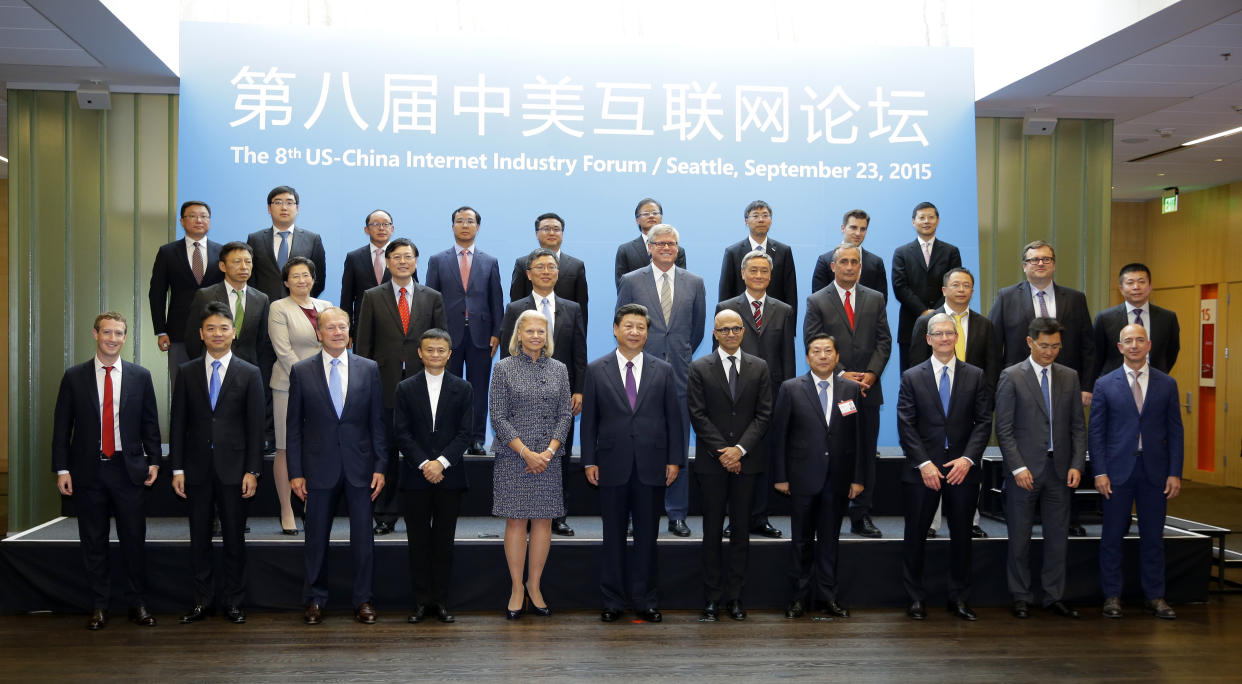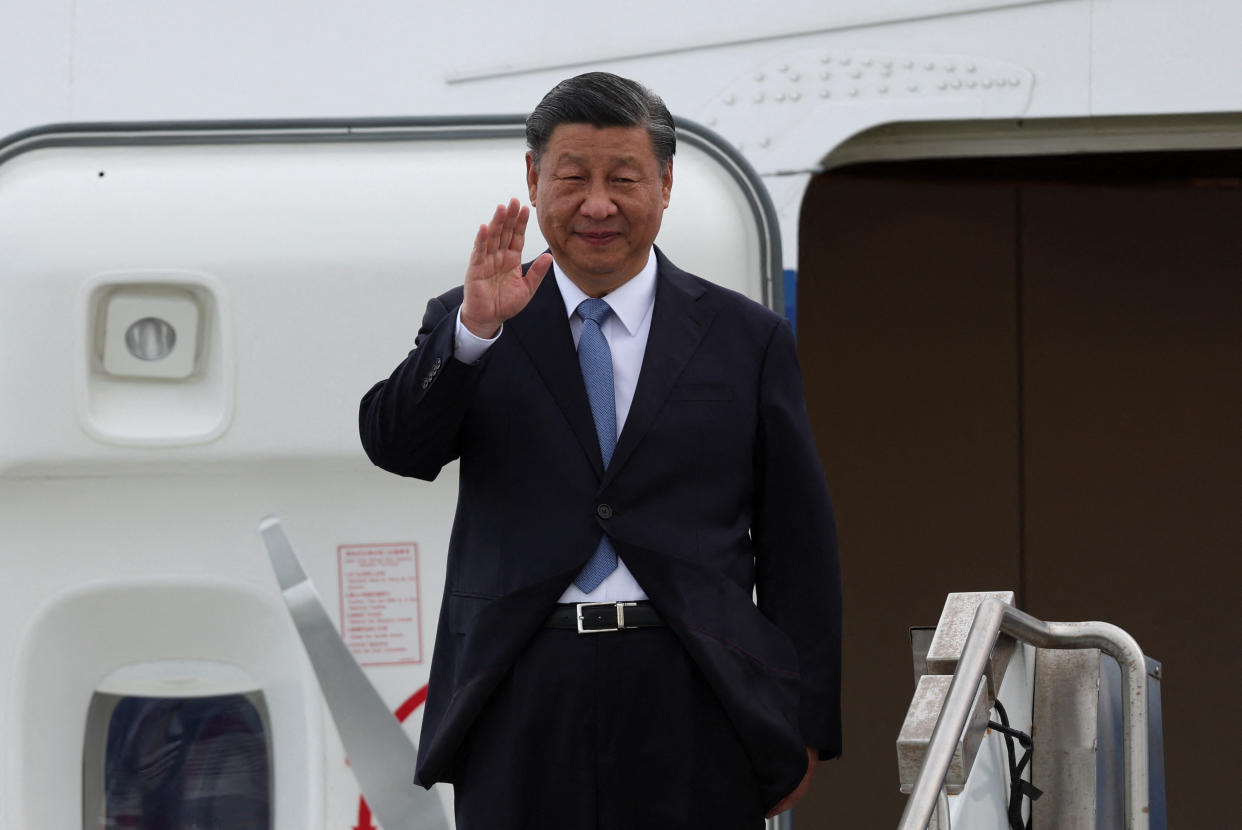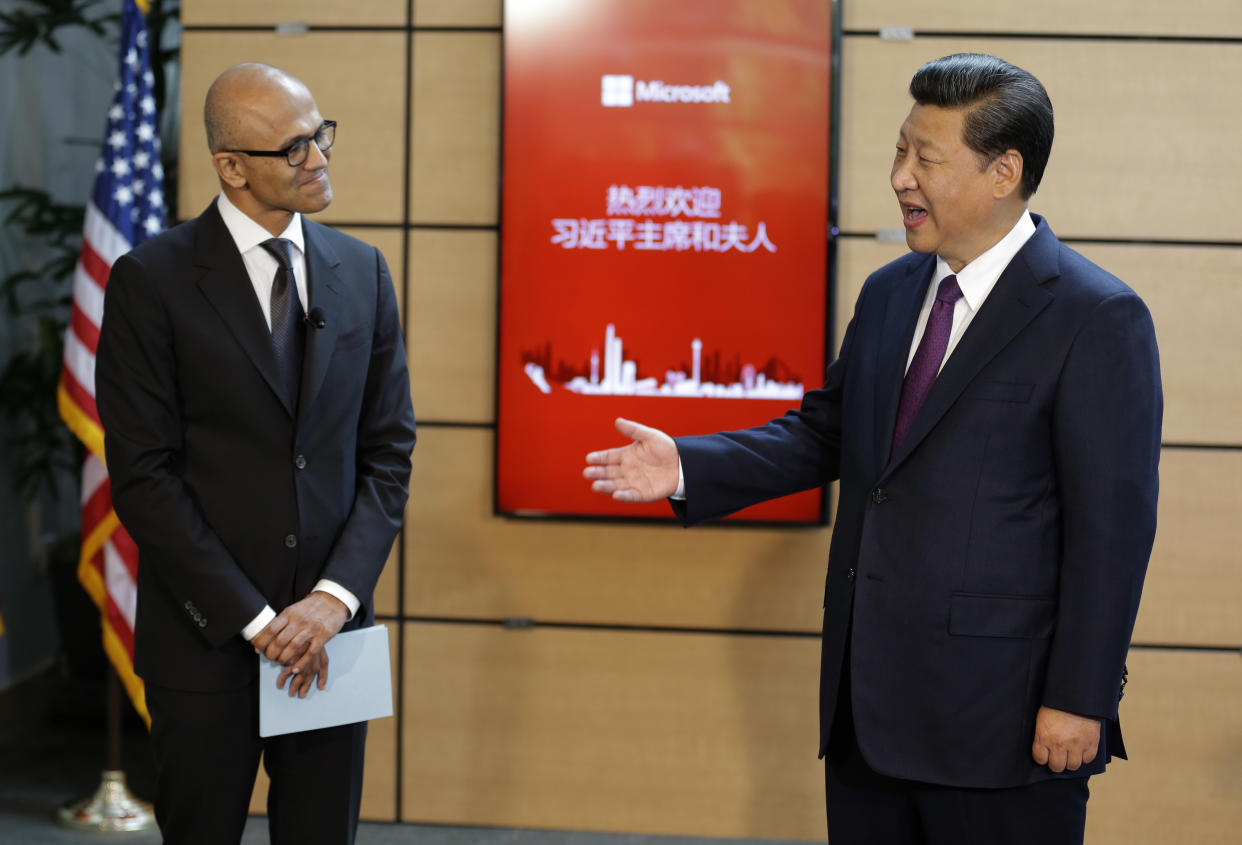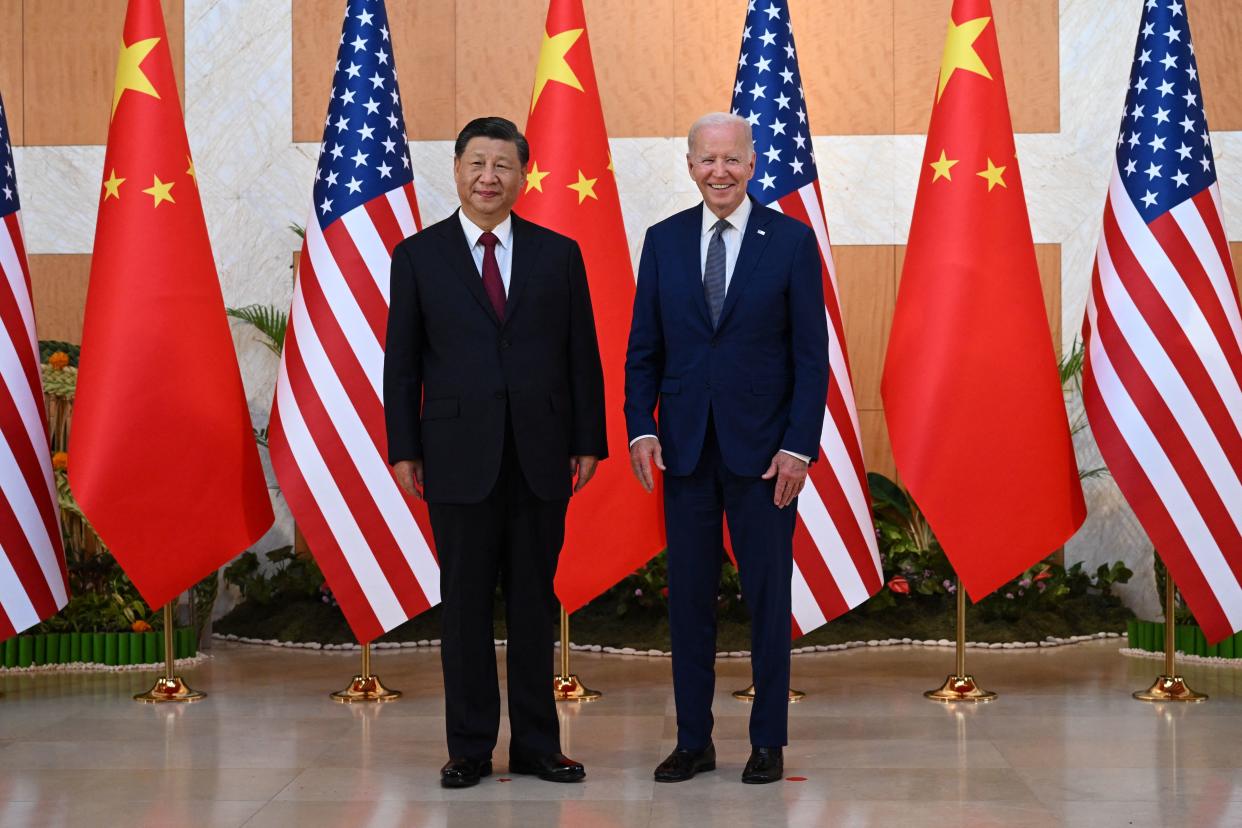Xi Jinping faces a more skeptical US business community as he makes his case for investment
Xi Jinping is having dinner Wednesday night with American CEOs at a time of rising US skepticism about China's tighter business controls and concerns about that country's slowing economy.
It was a much different story eight years ago, the last time Xi held court with American executives on US soil.
In 2015, American CEOs flocked to see the Chinese president while downplaying concerns about China’s state control of its economy, which was then churning out a 7% GDP growth rate.
That trip included a tour of Microsoft’s (MSFT) campus and a picture of Xi standing next to several rows of executives lining up to meet him, from Amazon’s (AMZN) then-CEO Jeff Bezos to Meta (META) CEO Mark Zuckerberg to Apple (AAPL) CEO Tim Cook.

Zuckerberg, who was eager at the time to reverse Facebook’s ban in China, greeted Xi first and spoke in Mandarin, according to reports from that trip. "Did you feel the room shake?" Cook was even quoted as saying about Xi's entrance.
But this week — with Facebook still banned in China and Zuckerberg himself recovering from an ACL tear — the Meta head is steering clear of the Asia-Pacific Economic Cooperation (APEC) summit in the San Francisco Bay Area. He is one of several leaders not planning to meet with Xi after years of tenser relations with China.
"At that time, in 2015, we were a lot more optimistic," said Stanford professor Herbert Lin, adding that there had been a hope then that China would eventually be integrated into a larger global economic system.
Lin said companies were well aware of the risks in previous eras but simply calculated they couldn’t pass up the Chinese market.
Now, "that belief is now a lot more shaky."
Ongoing geopolitical issues between the US and Chinese governments may only exacerbate the tensions in the coming years as Xi tries to simultaneously staunch the outflow of capital from the country while maintaining rigid political controls. Foreign direct investment in his nation turned negative in new data released this month.
The US-China Business Council’s annual member survey released in September found that "geopolitics is the single largest issue weighing down business sentiment" alongside concerns about China’s domestic policies.

Xi's challenge
While the pomp and circumstance that comes with any visit is sure to remain this time around, the tone and tenor of Xi’s interactions with CEOs are widely expected to be different.
In 2015, Microsoft CEO Satya Nadella gave Xi a personal tour of his company’s Redmond campus. This week, perhaps the most notable item on his itinerary is a panel alongside the leaders of Thailand, Vietnam, South Korea, and Chile as those nations aim to woo some US investment away from China.
Microsoft, to be sure, has an ongoing presence in China that stretches back decades and Nadella himself has maintained a bullish outlook for Asia in recent comments.
Other CEOs from Tesla’s (TSLA) Elon Musk to Citigroup’s (C) Jane Fraser are also seen as likely to seek an audience with XI this week as they try to maintain and grow the presence of their companies in China.

But Xi clearly has a challenge before him as he prepares to speak to assembled CEOs Wednesday night at a dinner reportedly organized by the National Committee on US-China Relations and the US-China Business Council.
"Beijing is trying to counter a US narrative that China has become 'uninvestable,'" said Reva Goujon, a director at Rhodium Group, in a recent client note.
But she added in an interview that Xi still has opportunities to dangle before CEOs.
"If you're in the EV business, for example, this is still the largest EV market in the world," she said.
'People really do believe China is an adversary'
Nicholas Lardy, an expert on the Chinese economy at the Peterson Institute for International Economics, predicts that Xi’s speech Wednesday "will say lots of good things about how open China is [but] the reality has moved in the opposite direction."
In spite of Xi’s rhetoric and some desire to goose the inflow of foreign investment and expertise, the Chinese leader has prioritized state control for years now, Lardy said, and many in the business community are now catching on to that shift.
"I don't think there's going to be much uptake" for Xi’s message, he added.

Xi is also sitting down Wednesday with US President Joe Biden in a meeting that the White House hopes will help stabilize the relationship between the two superpowers.
But White House officials have warned the bilateral meeting has little chance of offering breakthroughs on economic concerns from trade tensions to semiconductor export controls.
While Xi and Biden are hoping to announce some progress on issues like cooperation on AI, curbing fentanyl, and resuming military communication, few expect the larger issues to be resolved anytime soon.
"People really do believe China is an adversary," says Lin of the overall political climate. "It's the one place where both Republicans and Democrats really agree."
Akiko Fujita is an anchor and reporter for Yahoo Finance. Follow her on Twitter @AkikoFujita. Ben Werschkul is Washington correspondent for Yahoo Finance.
Click here for politics news related to business and money
Read the latest financial and business news from Yahoo Finance
